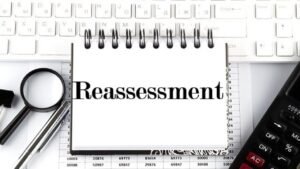By Merely Denying Landlord-Tenant Relationship, Defendant In Eviction Suit Can’t Enjoy Property During Pendency Without Depositing Rent
Case: Asha Rani Gupta v Sir Vineet Kumar
Coram: Justices Dinesh Maheshwari and Aniruddha Bose
Case No.: Civil Appeal 4682 of 2022
Court Observation: “In the context of the proposition of denial of title of the plaintiff and denial of relationship of landlord and tenant between the plaintiff and defendant, we may also observe that such a denial simpliciter does not and cannot absolve the lessee/tenant to deposit the due amount of rent/damages for use and occupation, unless he could show having made such payment in a lawful and bonafide manner. Of course, the question of bonafide is a question of fact, to be determined in every case with reference to its facts but, it cannot be laid down as a general proposition that by merely denying the title of plaintiff or relationship of landlord- tenant/lessor-lessee, a defendant of the suit of the present nature could enjoy the property during the pendency of the suit without depositing he amount of rent/damages”
“The only basic requirement in the suit of the nature envisaged by Order XV Rule 5 CPC is the character of defendant as being the lessee/tenant in the suit premises,”
“As per these provisions, in a suit by a lessor for eviction of a lessee after the determination of lease and for recovery of rent or compensation for use and occupation, the defendant is under the obligation: (1) to deposit the entire amount admitted by him to be due together with interest at the rate of 9% per annum on or before the first hearing of the suit; and (2) to regularly deposit the monthly amount due within a week of its accrual throughout the pendency of the suit. The consequence of default in making either of these deposits is that the Court may strike off his defence. The expression ‘first hearing’ means the date for filing written statement or the date for hearing mentioned in the summons; and in case of multiple dates, the last of them. The expression ‘monthly amount due’ means the amount due every month, whether as rent or damages for use and occupation at the admitted rate of rent after making no other deduction except taxes, if paid to the local authority on lessor’s account. It is, however, expected that before making an order striking off defence, the Court would consider the representation of the defendant, if made within 10 days of the first hearing or within 10 days of the expiry of one week from the date of accrual of monthly amount,”
“With respect, the said conclusion of the High Court could only be said to be an assumptive one, being not supported by any reason. In paragraph 44, of course, the High Court observed with reference to the decisions of this Court that the discretionary power must be exercised with great circumspection but, such enunciation by this Court cannot be read to mean that whatever may be the fault and want of bonafide in the defendant/tenant, he would be readily given the so-called ‘indulgence’ of not striking off defence. Such an approach is neither envisaged by the statutory provisions nor by the referred decisions. In fact, such an approach would simply render the relevant provisions of law rather nugatory. The expected circumspection would require the Court to be cautious of all the relevant facts and the material on record and not to strike off the defence as a matter of routine.”
Previous Posts
JJ Act: Child In Conflict With Law Can Seek Anticipatory Bail U/S 438 CrPC: Bombay High Court
Cannot Find Favour When Free Speech Is Celebrated – Kerala High Court Quashes Censure against KSEB Cashier For WhatsApp Text Against CM Download Judgement
Keywords
Landlord-Tenant Relationship, Denying Landlord-Tenant Relationship




